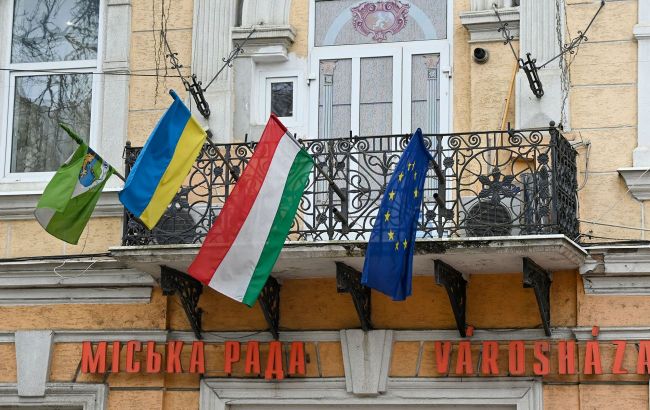Hungary's election campaign spells trouble for Ukraine: Where the major parties stand
 Illustrative photo: Hungary is blocking Ukraine's accession to the EU (Getty Images)
Illustrative photo: Hungary is blocking Ukraine's accession to the EU (Getty Images)
Parliamentary elections are to be held in Hungary next April. Viktor Orbán's Fidesz party and Péter Magyar's opposition Tisza party are both contending for victory, according to the RBC-Ukraine article Orbán turns on Ukraine again: Spy twists and consequences for Kyiv.
Magyar positions his party as centrist and opposes not only Fidesz but also the left-liberal opposition, which holds several seats in parliament. The politician comments very cautiously on the topic of the Russia-Ukraine war.
This limits the government's ability to criticize him as a "war supporter" in contrast to "peacemaker" Orbán.
"For example, if we see how his party's representatives are voting in the European Parliament, then we can see that in any questions which are related to the war or Ukraine or sanctions towards Russia, Tisza party members in the European Parliament don't say yes or no, they are abstaining," Zsuzsanna Szelényi, Founding director of the Democracy Institute at Central European University, told RBC-Ukraine.
That is why pro-government propaganda about Magyar has focused on economic issues. And this is where Ukraine faces the most dangers.
Hungary against Ukraine's accession to the EU
According to Senior analyst at the Republikon Institute in Budapest and former President of Amnesty International Hungary Zoltán Ranschburg, in response to Hungary's disappointing economic performance, Orbán's government began spreading the idea that there is a real chance Ukraine could join the European Union in the near future. And that this is exactly what Magyar would approve of if his party were in power. The second part of this thesis is that Ukraine's EU accession would immediately destroy the Hungarian economy.
"The economic situation - and, most importantly, its perception by the voters - is going to be a decisive factor in next year's elections, and Fidesz is doing everything in its power to shift the blame for the economy’s problems on the EU and on Ukraine," Ranschburg said.
In practice, this means blocking the euro-integration procedures. Early this year, Ukrainian officials announced an ambitious goal - to open all six so-called clusters, meaning to start practical negotiations on Ukraine's EU accession.
Decisions on this procedure are made unanimously, so Hungary must also support it. But Orbán launched national consultations on this matter, essentially voter surveys. However, the questions are formulated so manipulatively that a negative result for Ukraine is almost guaranteed. The decision on the clusters could have been made by the European Council at the summit on June 26–27. Orbán's consultations, however, end on June 20.
After the outbreak of the war, Hungary was labeled as an enemy country of Ukrainians and was perceived as an ally of Russia. Hungary is ranked alongside the DPRK, China, Iran, and Belarus.
This year, the Hungarian opposition party Tisza held a vote as part of the Voice of the Nation program. When asked about their support for Ukraine's accession to the European Union, 58% of Hungarians answered positively.

